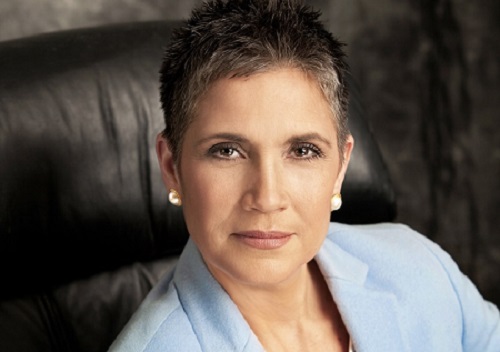

Unconscious biases, which are attitudes, behaviors, and actions prejudiced in favor or against specific groups of people that everybody holds, and are formed automatically and unintentionally, according to the National Institutes of Health, create challenges when it comes to recruiting and retaining a diverse workforce. Women in insurance as well as minorities who are looking to advance their careers can be especially impacted by unconscious bias, which is difficult to overcome considering how deep these biases can go.
“When you look at unconscious bias and what prompts it, it really is about our backgrounds, and where we were raised and how we were raised,” said Nina Boone (pictured), managing director of M&A and transaction solutions at Aon, and a speaker at the upcoming Women in Insurance Miami. “Those sorts of muscles, if you will, take over and we make assumptions,” by referring to the ‘rolodex’ we have inside our minds of life experiences.
Unconscious bias often comes into play during the recruitment process. If a group of interviewers all look alike in terms of race and gender, work in the same business unit, and live in the same region, there will likely also be a lot of overlap in their life experiences as well as the environments they work in, which in turn means they could hold the same implicit biases about the interviewees sitting in front of them.
“What Aon is working to do is create a diverse panel of interviewers that bring different rolodexes to the conversation, so not only do we get a different, varying set of unconscious biases, but when you do that, what happens is then we consciously make decisions,” explained Boone. “All of a sudden, we’re talking very openly about our thoughts and thinking around that candidate.”
As a result, even if a company is bringing in women or diverse candidates for interviews, but they’re facing a homogenous group of interviewers, no matter what that looks like, that company might not end up with a diverse team, explained Boone.
Tackling unconscious bias is likewise important when individuals are looking to move up in their careers. For example, a leader might hold an unconscious bias about a female team member that they assume won’t want to travel, if she was promoted to a position where that would be a requirement, because she has small children.
“We should always assume that if a person has put forth their resume to do the job, that they understand the job and should do the job,” said Boone, adding that verbalizing these biases is important since they can then be addressed.
The insurance industry is making strides to promote diversity and inclusion by putting in the effort to combat concepts like unconscious bias that can prevent initiatives from moving forward, though there is still room for improvement.
“The industry as a whole is struggling with finding candidates that they consciously or unconsciously will consider for positions. I think we’re still getting used to seeing women sitting in rooms that they didn’t sit in before. I think we are making strides with women more quickly than we are with our minority and ethnically diverse candidates and that includes women of color,” said Boone, though she adds, “The industry as a whole is taking intentional steps to make it better. I think we are competing with the financial industry and with other industries that are also very intentionally [looking at] acquiring these candidates. It’s a tough market right now, but I do think that we are absolutely committed.”
Take a deeper dive into this issue at Women in Insurance Miami.
